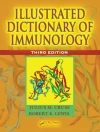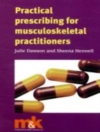This new volume in the Reproductive Medicine for Clinicians series of the International Academy of Human Reproduction (IAHR) focuses on current hot topics in the field, their ethical and legal aspects and their impact on society.
It covers topics such as Covid-19, religious and philosophical controversies, possibilities that new technologies offer, human reproductive cloning problems, future challenges related to the heritable gene editing, therapeutic use of stem cells and stem cell factors and the role of receptors in steroids hormone action.
This volume also offers an analysis of important innovations and new possibilities such as the use of artificial intelligence in reproductive medicine and the future of prenatal testing. The volume also discusses the issues of pregnancies in advanced paternal age, ethical and legal aspects of gametes donation, sex preselection, surrogate motherhood and infertility in overweight or obese PCOS patients. Chapters on the ethicaland legal aspects of fertility preservation in woman, in children with cancer, and in patients sparing treatments in gynecological oncology are also included.
This new volume in the series is a valuable resource for gynecologists, obstetricians, endocrinologists, general practitioners and all specialists dealing with reproductive health.
Spis treści
Part I.Covid-19 Pandemic.- 1.Covid-19: Pandemic effect on Reproduction (Yaakov Ben-tov and Joseph G. Schenker).- 2. COVID-19 pandemic and vaccination (Yonatan Oster).- 3. Pregnancy: legal and ethical issues of vaccine refusal (Abraham Steinberg).- Part II. Beginning of Human Life.- 4. Scientific and religious controversies on beginning of human life (Asim Kurjak).- 5 .Philosophical consideration about the beginning of human life (Frank Chervenak and Amos Grunenbaum).- Part III. Rights to Reproduce.- 6. ART- Right to reproduce (Frankel RA, Merkison J, De Cherney AH).- 7. Surrogate Pregnancies: Medical, Ethical, Legal and Religious Aspects (Einat Gutman- Ido and Joseph. G. Schenker).- 8.Human Reproductive Cloning(Benagiano G and Bianchi P).- 9.The Postmenopausal mother (Bitzer I).- 10. Sex Preselection (Serour Gamal).- 11. Planned oocyte cryopreservation -Social aspects (Tzafril A and Hyman I).- 12. Medical , Social, Legal’, Religious Aspects of Genetic Material Donation (Yoel Shufaro, Alyssa Hochberg, Joseph G Schenker).- 13. Legal Aspects of ART – Informed Consent (Golan Ofra).- Part IV. Innovative Technologies.- 15. Artificial Intelligence in reproductive medicine (Assaf Ben-Meir, Natali Schachter-Safrai).- 15. PGT -A also known as PGS – the indication (Schmutzler A).- 16. In vitro oocyte maturation (Tan Justin and Tan SL).- 17. Medical and ethical aspects of Non-invasive Prenatal Diagnosis (NIPT) (Wolfgang Holzgreve).- 18. Embryo Specific Communication and Interaction with Maternal Environment (Barnea Eytan).- Partr V. Some Difficult Patients.- 19. Management of infertility in overweight or obese PCOS patients (Xiangyan Ruan, Yu Yang, Muqing Gu, and Pooja Dhunge).- 20. Ethical issues in fertility sparing treatments in Gynecological Oncology (Simoncini Tommaso, Caretto Marta).
O autorze
Joseph G. Schenker, IAHR President, Professor and Chairman (Emeritus), Department of Obstetrics and Gynecology, Hebrew University, Hadassah Medical Center, Jerusalem, Israel.
Martin Birkhaeuser, Professor Emeritus of Gynecological Endocrinology and Reproductive Medicine, University of Berne, Switzerland.
Andrea R. Genazzani, IAHR General Secretary, Professor of Obstetrics and Gynecology, University of Pisa, Italy.
John J. Sciarra, IAHR Vice President, Professor and Chairman Emeritus, Department of Obstetrics and Gynecology, Northwestern University Medical School, Chicago, IL, USA.
Liselotte Mettler, IAHR Treasurer and General Director, Professor Emeritus, Department of Obstetrics and Gynecology, University Clinics of Schleswig-Holstein, Kiel, Germany.












